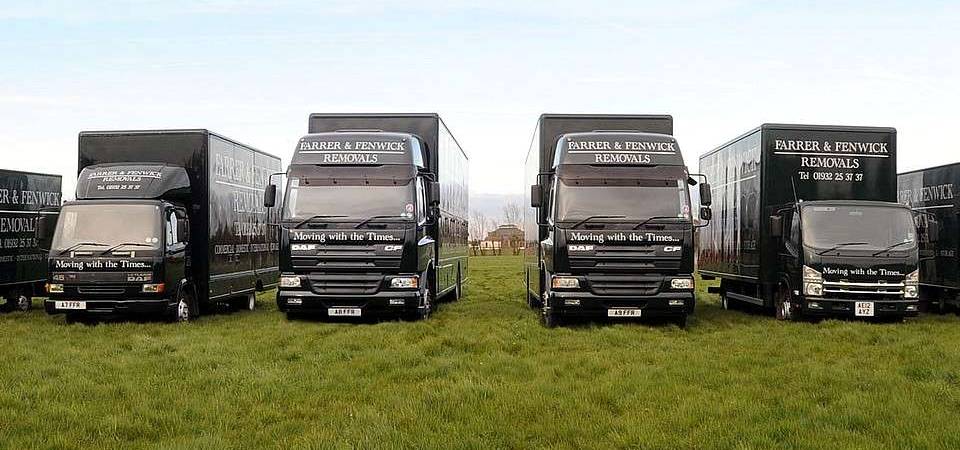In 2013, our trade association staged a parade of vintage removals vehicles along the cobbled streets of Beamish Museum. An interesting addition to the national removals conference being help there.
Also a reminder of a need which has existed for a long time, when people move home, so must their possessions. We help to meet this requirement in Surrey, although we are a speck in time compared to the history of human movement.
Taking things with you would have been as essential to our ancestors, for personal pleasure and survival. A task which has featured in the history of Surrey
Into Surrey's Past
Long before Surrey existed as such, the river system had been a basis for settlement and transport. Dug out boats were in use not long after the ice age, larger vessels well before Roman times.
The departure of the Romans and the arrival of the Saxons in the 5th to 6th centuries saw the arrival of what we know as Surrey. Then called Suthrige, meaning "Southern Kingdom", the southern part of Middle Saxon territory.
Surrey was for a time ruled by a king called Frithuwald, who was responsible for creating Surrey's first known records on removals. He founded the monastery of Saint Peter in Chertsey, bringing written local history to us.
Day to day tablets from the Roman era had already made clear the importance of moving items safely, from socks, to a stool. Detailed records by the monks from later centuries offer more.
Domestic survival often revolved around the ability to move goods, or possessions. Internal conflicts and the invasion of the Vikings added greater need for families to seek a peaceful haven, not wishing to leave everything behind.
The Normans followed, then the dynastic upheavals of the Middle Ages. More reasons for people to move, although there were always practical, family reasons as well, the requirements of daily life.
As society developed, more people owned more to move, the Tudor dynasty and life amidst their royal palaces a top end example. They created our earliest national removals service, appointing an official as the first removals surveyor.
This is a potted history but the point is valid. Removals are not new, for survival, or comfort. Taking things with us has existed almost as long as we have, people and their possessions are entwined.
Removals In Modern Times
The industrial revolution brought more change than had been seen for 1000 years. Surrey was not an industrial heartland, but technology did bring changes, the proximity to London also mattered.
Industry needs finance and London has always been at the centre of this. Growth also spreads material wealth, the origins of our class structure, new groups of people who would own more and need support to move.
Surrey's waterways continued to be a transport hub, rivers and new canals. Horse power mattered for them and the emerging railways. The first public railway in England was horse drawn and in Surrey.
The Surrey Iron Railway opened in 1803, mainly to carry commercial goods and materials, although there are records of personal items being transported. Not that this railway lasted too long, overtaken by the power of steam.
Rail travel truly revolutionised transport across England and changed the face of Surrey for ever. Stations and towns around them emerging at a remarkable rate, the commuter belt had begun.
The transformation from a sparsely populated county to today's 1.2 million people brought demand for domestic services. Removals in Surrey amongst them, with property and residence such a focus.
In a sense, we can let the video above take over from here. A fascinating peer into the history of the vehicles which met this emerging need, so many more people with the contents of a home, or business to transport.
Not that the requirements have changed so much over time. Precious hides, or bows and arrows may have given way to televisions, fridges, or comfy sofas but the principle remains. People care about and need what they own.


